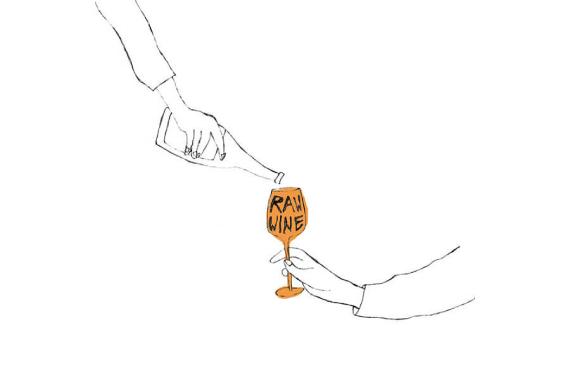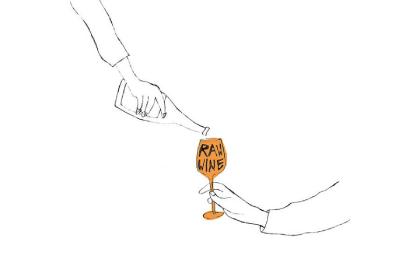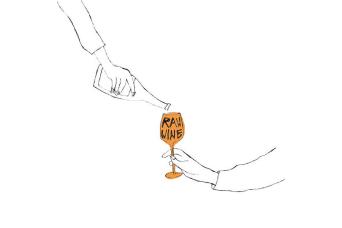


About
Enoteca Saint VinSaint opened its doors on January 22, 2008. Pioneers in working with natural, organic, and biodynamic wines in Brazil, we work with 100% organic and artisanal raw materials in the kitchen, respecting the seasons and harvesting from our own organic gardens or those of small producers around the state of São Paulo. We do not use refined or ultra-processed products, and we have compiled a list of hundreds of small producers to partner with around the state of São Paulo. Having our organic gardens and cultivate was only a natural consequence – we maintain our own organic gardens since 2015, and they provide us with herbs, medicinal plants and leafy greens, flowers, as well as some of our vegetables and fruits. We also keep free-range chickens for their eggs and goats for their fresh milk.
Principles:
Not having a set menu. Only determining the dishes after having received the ingredients from our garden and our organic suppliers. Respecting seasons and dietary traditions. Not wasting. Extracting as much as possible from all ingredients. Repurposing. Getting to know the producers. Allowing nature and farmers to tell us what to use and cook each season. For us, the true value of food is in the people who cultivate it in this small scale that is also mindful, local, and sustainable.
All the herbs, vegetables, eggs, and goat milk come straight from our organic farm. However, we believe in circular consumption and production systems, and being self-sufficient doesn't necessarily mean being sustainable. We want people who are in the fields to remain in the fields, caring for the land; that's the reason we have spent over a decade building a network of hundreds of artisanal, organic farmers who work the land cleanly and respectfully and provide their products directly to us. We also buy products from the main institutes that promote direct contact between consumers and farmers. Our list of suppliers is open and available to anyone who wishes to use them.
Menu & Gardens:
Our menu is 100% organic and seasonal, with ingredients grown in our gardens or those of small artisanal producers. Some ingredients also come from different parts of the country, such as the cornmeal from Rio Grande do Sul, the tapioca from Rio Grande do Norte, and the raw cheeses from Minas Gerais. We believe the crops, the seasons, and the producers should determine what we cook, not the other way around. That's the reason we don't have a set menu. We create seasonal menus according to the ingredients' daily or monthly availability. In addition to the dishes listed on the blackboard, we have designed menus in 4 or 6 courses for a more complete experience of our concept.
More than 60% of our menu is plant-based. We have been growing all the herbs and vegetables we offer in our menu in our organic gardens since 2015. Our vegetable garden is also the source of our eggs, laid by free-range chickens fed with natural food and fresh goat milk. Everything we don't grow or produce ourselves, we buy directly from producers or institutes who promote direct contact between consumers and farmers. Our list of suppliers is comprised of hundreds of organic and artisanal producers we found in the last decade, and it is available for those who wish to receive it by e-mail.
We use the entirety of our materials, whether they are animals or plants. From milk, we extract all derivatives: butter, cream, serum. We look for new ways to use raw materials and also try to find and use unconventional food plants, such as medicinal herbs and edible flowers that grow spontaneously in our orchard. We solely work with artisanal, sustainable, and seasonal fishing, and prefer small fish to big fish.
We use only fresh milk, from our goats or friends' cows, which we know how are fed and treated. We make our plant milks using coconut, seeds, grains, or nuts. The pulp left after the milk is strained is made into flour and used in cakes, cookies, and bread's recipes. The whey that remains from making curd, yogurt, butter, and cream returns as an ingredient to recipes like those for rice, doce de leite (a milk-based caramel cream), fermented foods, sauces, as well as being used as fertilizer for our garden.
Our bread uses natural long fermentation, and for the base, only ancient grains, as well as manioc flour, heirloom cornmeal, and a series of repurposed ingredients such as peels, legumes, vegetable milk, and coffee grounds. Every week we receive fresh cow milk and use it to make fermented butter, curd, and heavy cream. Whenever possible, we also use milk from our goats.
Wines & Drinks:
We are pioneers in working with natural wines in Brazil. Our wine list is 100% natural , organic and biodynamic since 2010 and has about 200 labels in rotation monthly, served in their bottles or by the glass.
We prioritize Brazilian wines and work alongside all the natural producers in the country. In addition to wines, our menu offers other beverages such as ciders, beers, infusions, teas, coffees, kombuchas, and distilled beverages, all of which are organic or biodynamic.
The seasonal infusions are made with herbs we cultivate, and they change throughout the year. The cold brews are made with reused products, such as used coffee grounds, fruit peels, and kombuchas, made with ingredients from our gardens. The teas – from China, India, and Brazil – are organic and selected each season. The garrafada (a Brazilian alcoholic infusion ) uses medicinal plants from our gardens and organic cachaça. We make our pour-over coffee with freshly ground beans from the best roasters in Brazil. The options change every week.
N1 & N2: these are our wines. "N" is the initial letter of Natureba, natural, and nitrogen – and our way of fertilizing the land and the Brazilian wine market. Made of organic grapes and with natural vinification, these wines were born to broaden the organic production in our country. When the farmers have excess crops, we make our wines. When they don't, we don't. Each year we pick a different farmer and partner with them to make wine according to "our ways" and with a more affordable price point.
Responsible circular system :
We spend a large portion of our time using and repurposing elements in and outside of our kitchen.
We use the entirety of our materials, whether they are animals or plants. We look for new ways to use raw materials and also try to find and use unconventional food plants, such as medicinal herbs and edible flowers that grow spontaneously in our orchard.
All the herbs, vegetables, eggs, and goat milk come straight from our organic farm, however, we believe in circular consumption and production systems, and being self-sufficient doesn't necessarily mean being sustainable. We want people who are in the fields to remain in the fields, caring for the land; that's the reason we have spent over a decade building a network of hundreds of artisanal, organic farmers who work the land cleanly and respectfully and provide their products directly to us. We also buy products from the main institutes that promote direct contact between consumers and farmers. Our list of suppliers is open and available to anyone who wishes to use them.
We sort everything that is recyclable and take it to recycling stations in our neighborhood. We make our own artisanal paper for the grocery store with used paper that would end up in the trash. The corks, we use inside cardboard boxes to transport wine bottles.
Besides our network of organic producers, we work with friends who collect leftovers from street markets, ugly-looking vegetables, and returned produce from large retailers.
We have replaced our electrical circuit with a more cost-effective setup and installed solar energy panels to heat our water – our plan is to start using only solar energy for the restaurant in the next few years. We are gradually installing water collectors and building a green roof, which will be our orchard for sprouts and a school.
Composting, repurposing & recycling:
We have an organic garden that supplies our restaurant. Since we opt for keeping a circular system, nothing goes to waste. We use, repurpose, and as a last resort, we compost. This composting is done by us, and the compost is returned to the garden as fertilizer for new crops. We have composters and a worm farm. The fertilizers are made with leftovers from the kitchen that would otherwise end up in the trash, as well as pruning wastes, leaves, straw from the animal's beddings, and manure from our chickens and goats.
Eggshells, used coffee grounds and cooking oil, fruit and vegetable peels, leftover wine inside the bottles – everything is put to use and gets transformed. Whatever we don't use in our dishes will feed our team or be repurposed and turned into new products such as pestos, flours, compotes, extracts, and pickles. A portion of that we use as natural feed for our animals, and we prepare meals for all of them: goats, chickens, dogs, cats. The goats give us fresh milk and the chickens, the eggs we use in our kitchen. As a last resort, the leftovers go to composters.
Vegetable peels become biomass or return to dishes as decorations and side portions. Stems are used to make lacto-fermented pickles. Leaves become green extract for stocks and sauces, or green juices for brunch. Toasted pumpkin seeds garnish dishes, and papaya seeds become seasoning. With branches and herbs, we make oils and pestos. Medicinal herbs are used in infusions and garrafadas. Unconventional food plants become ingredients.
The vinegar is made with the wine that is left from what we serve the tables. We save the used coffee grounds to make cakes, bread, flours, and even cold brews with cocoa beans' shells and lime peel. The citric peels we save and dry for infusions or jams and compotes, or even for cleaning products we make ourselves. The used cooking oil is turned into soap with added papaya leaves from our gardens. The used coffee grounds are also used as fertilizer, and the vinegar is used for pickling and cleaning.
The flour remnants from coconut and nut milks are put back into bread and cake recipes. With onion peels, we make a medicinal infusion. We save all the eggshells, then dry and grind them to make an eggshell powder that we use to supplement our garden, our food, or our animals' feed.
We sort everything that is recyclable and take it to recycling stations in our neighborhood. We make artisanal paper for the grocery store with used paper that would end up in the trash. The corks, we use inside cardboard boxes to transport wine bottles. The empty wine bottles we use as water or vinegar bottles.
Contact Details
Rua Professor Atílio Inocenti 811
Vila Nova Conceição
São Paulo,
06351130
Brazil



